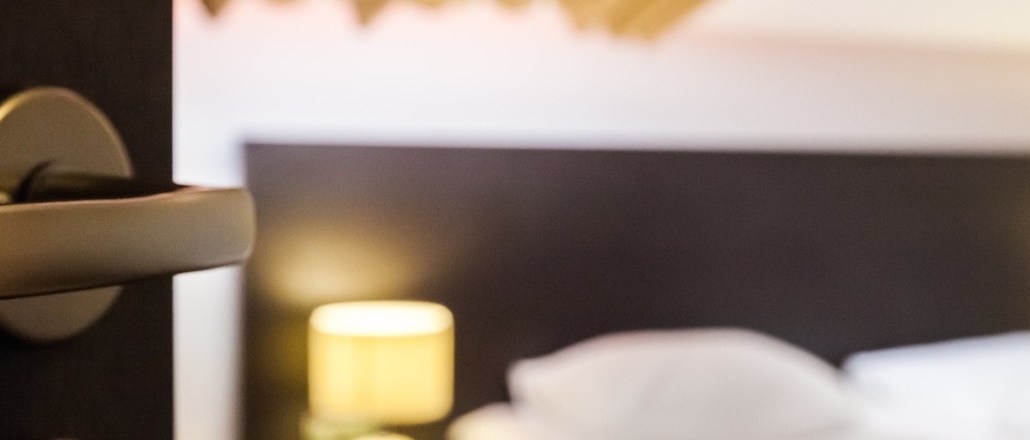Secure your place at the Digiday Publishing Summit in Vail, March 23-25

Marriott is turning its hotel room upside down.
This week in New York, the hotel chain unveiled the #MGravityRoom, an inverted room designed to showcase its modern new decor. The idea of the experiential marketing ploy is to highlight Marriott’s new room decor by turning one of its rooms upside down. The installation has a chair, a desk and a bed hanging from the wall on one side, so when you walk in and take a picture, it appears as though you are on the room’s ceiling.
“This was a really fun, creative way for us to be able to showcase our new design, where we’re literally taking the guest room and flipping it on its head,” said Matthew Carroll, Marriott’s vp of global brand management.
Marriott worked with a range of design firms, including Marriott I + A Design Studio, Fairmont Designs, Brookline Furniture, Belstone, Wolf Gordon, Mosaic Tile Company, Historic Timber and Plank, Sandler Seating and Designtex. The installation is available for people to check out at the New York Marriott at the Brooklyn Bridge until Oct. 1.
The reach of such experiential stunts is by definition limited, but Marriott hopes the unique chance for people to take a photo seemingly sitting on the ceiling will spur social sharing that will get the brand into people’s Facebook, Instagram and Twitter feeds.
Stop by @MHMarriottBK now to view our interactive + evolving modern guest room design, with a twist. #MGravityRoom pic.twitter.com/l26RNMO0FC
— Marriott Hotels (@Marriott) September 20, 2016
Marriott is no stranger to experiential marketing. Last year, the brand offered its guests virtual tours of Chile, China and Rwanda right from the comfort of their hotel rooms. In 2014, it tapped Oculus Rift to give guests tours of Hawaii and London through a giant simulator.
“We’re having fun in the space and taking risks, and this is just the most recent example of one of those risks,” said Carroll.
More in Marketing

‘The conversation has shifted’: The CFO moved upstream. Now agencies have to as well
One interesting side effect of marketing coming under greater scrutiny in the boardroom: CFOs are working more closely with agencies than ever before.

Why one brand reimbursed $10,000 to customers who paid its ‘Trump Tariff Surcharge’ last year
Sexual wellness company Dame is one of the first brands to proactively return money tied to President Donald Trump’s now-invalidated tariffs.

WTF is Meta’s Manus tool?
Meta added a new agentic AI tool to its Ads Manager in February. Buyers have been cautiously probing its potential use cases.





